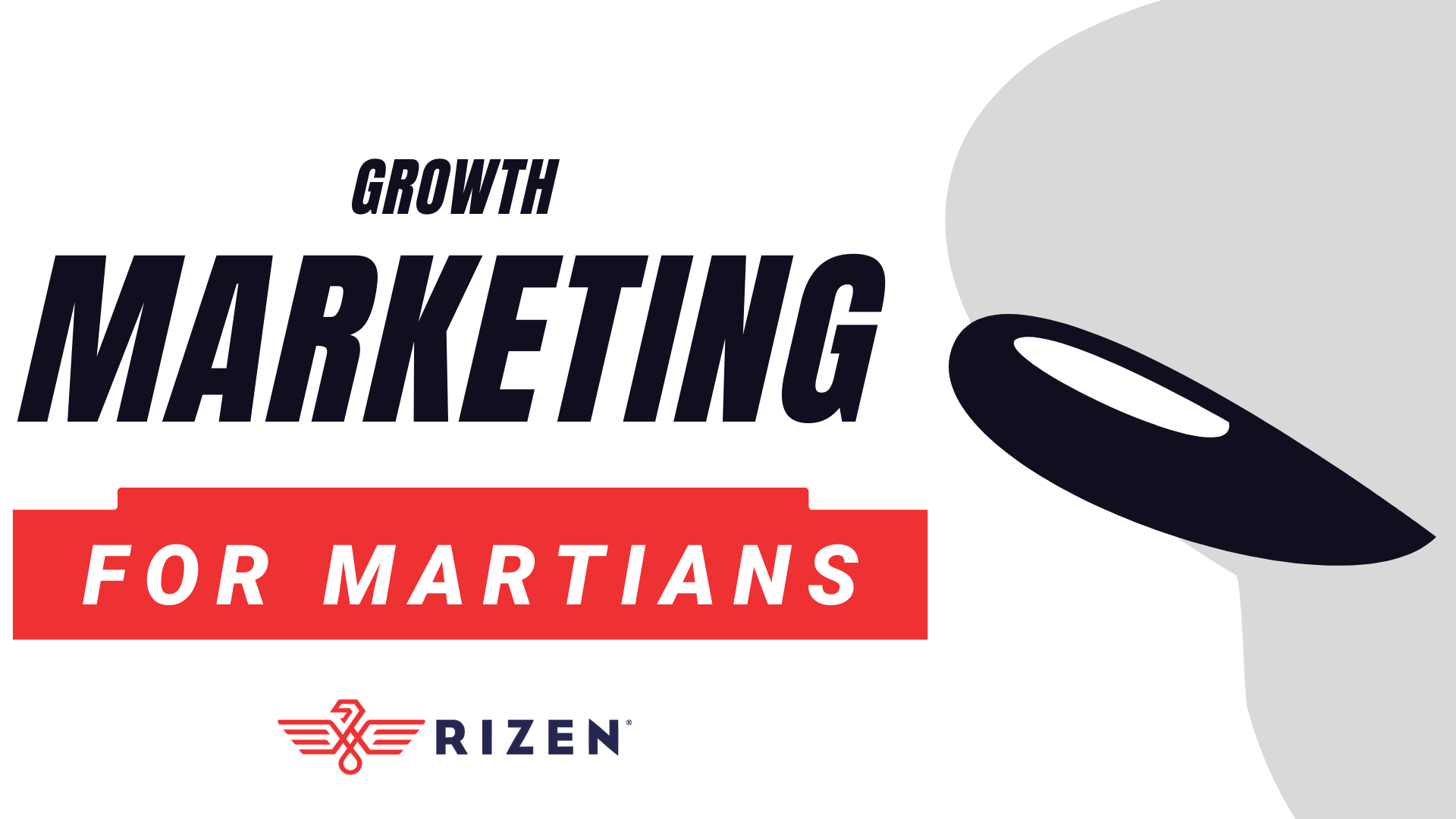
Ah Millennials. The generation that brought us avocado toast and destroyed a thousand industries. As a Millennial myself, I think we are the generation of change and progress - so why do brands regularly fail so spectacularly at speaking to us?
We have some thoughts as to why, plus some excellent ideas your company can use to reach them - er - us. Today, on Growth Marketing for Martians.
Listen to the Full Episode:
 Who Are Millennials?
Who Are Millennials?
- Millennials are anyone born between 1981 and 1996 (Pew Research Center)
- They make up more than a quarter of the population and, as of 2019, are the largest generation in the US, outpacing Baby Boomers (Investopedia)
- Millennials spend an average of 5.7 hours a day on their smartphones
- The majority of US Millennials are politically moderate, neither Democrat nor Republican (Wikipedia)
- They tend to be “detached from institutions and are [instead] networked with friends” (Pew Research Center)
 Why Should Brands Pay Attention to This Demographic?
Why Should Brands Pay Attention to This Demographic?
- Millennials are dominating the workforce, and have the highest spending power.
- Millennials spend about $200B/year on goods and services (US Chamber of Commerce)
- Millennials make up the largest part of the population and have significant long-term value for brands that can win them over and maintain loyalty, making Millennials the most valuable target demographic today.
 Why Do Companies Often “Miss the Mark” When Trying to Reach Millennials?
Why Do Companies Often “Miss the Mark” When Trying to Reach Millennials?
- Because they don’t know where Millennials are spending their cash and aren’t adaptive to shifting their product marketing accordingly.
- Millennials spend more than other generational segments on the following: convenience, online shopping, debt payments, food away from home, experiences and travel, streaming services, social impact (US News)
- Because they’re not doing mobile marketing. 93% of Millennials own smartphones. To reach them, your company needs to employ SMS Marketing, mobile app development, mobile-ready web and ecommerce sites
- Because they’re not embracing Influencer Marketing or paying enough attention to online reviews. Millennials are detached and untrustful of institutions. They learn about products and services through peers and online reviews — this is radically different from the advertising-focused marketing of earlier generations.
 Is it True Millennials Support Greater Causes Than Profits?
Is it True Millennials Support Greater Causes Than Profits?
Here are some status supporting this claim:
- Millennials place 3X as much importance on a company’s Environmental, Social, and Governance (ESG) standards when making buying decisions relative to non-millennials. (RepTrak)
- In a recent survey, 63% of Millennials, said the primary purpose of businesses should be “improving society” vs. “generating profit." (Korn Ferry Institute)
- 92% of Millennials believe businesses should be measured by more than their profits. (Deloitte)
Millennials not only spend their money on goods and services or companies that are “doing the right thing,” but they also prefer to work for companies that have a higher purpose.
 How Important is it for Brands to Have a "Cutting Edge" Approach to Technology to Reach Millennials?
How Important is it for Brands to Have a "Cutting Edge" Approach to Technology to Reach Millennials?
Short answer: It certainly helps!
- Deliver on instant gratification. Millennials have come of age in a tech-savvy world. Their social media, mobile app, and smart device usage is part of who they are. Appeal to them with chatbots, push notifications, quick social media responses and engagement.
- Deliver on convenience. Amazon is the top app downloaded by Millennials followed by Gmail, Facebook, Facebook Messenger, and YouTube. Each of these apps make for easy and super quick shopping, communication, entertainment, engagement, and connection. Copy this template for successful marketing outreach to Millennials.
- Consider Augmented and Virtual Reality. These are innovative areas of decentralization and personalization that directly appeal to Millennials. THis is an increasingly high growth area where 44% of Millennials have already used AR to assist them in shopping and another 47% said they would like to if given the opportunity. (Statista)
 Why is Influencer Marketing So Effective With Millennials?
Why is Influencer Marketing So Effective With Millennials?
- Trust and Authenticity: 84% of Millennials reported to Forbes that they did not like nor trust traditional marketing efforts. Millennials trust third-party recommendations rather than the corporate institution itself.
- Personalization: Influencer Marketing is not about an exceedingly famous person drinking a Pepsi, but about personalized engagement where it’s clear the influencer would use the product regardless of the paid platform.
 How Can My Brand Improve Our Millennial Marketing Mindset?
How Can My Brand Improve Our Millennial Marketing Mindset?
- Maintain your curiosity; have an open mind. This is a generation that may get to:
- Visit Mars
- See (or be part of) the dissipation of gender binaries
- See the end of the dollar bill as cryptocurrencies emerge
- See the rise of self-driving (or flying!?) cars as the norm
- Push the purpose agenda of companies to align doing good with making money.
- You don’t need to believe in or ascribe to these ideas but, like most Millennials, you ought to consider recognizing their probable inevitability.
- Stay up to date on current and upcoming marketing trends. Virtual and Augmented Reality are no joke. Follow companies that are leading the way (Warby Parker, Gucci, Toyota, IKEA).
- A sales holodeck is right around the corner!
Check Out Our Podcast for More Growth-Focused Discussions
This content is from a recent episode of Growth Marketing for Martians, a podcast dedicated to discussing tomorrow's business growth tips -today!
Hosted by Rogelio Rodriguez and Jeff Lambert, these marketing Martians share an intergalactic love for learning and sharing with other podcast space travelers.
Tune in for new episodes each week! Until then, keep reaching for the stars!








No Comments Yet
Let us know what you think